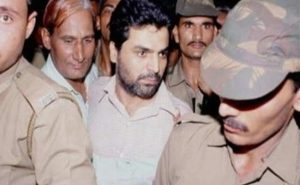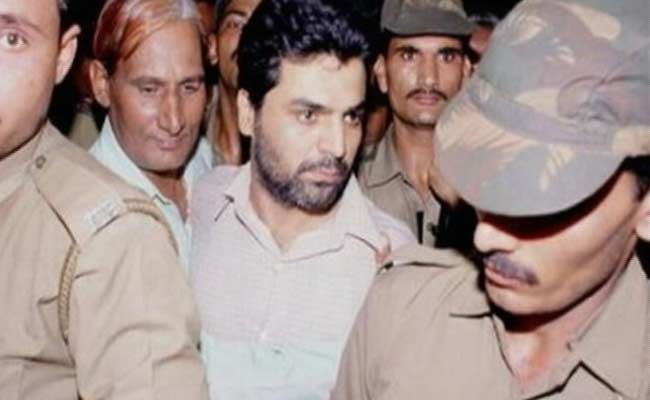
Janjivan Bureau
New Delhi: Eight years ago RAW officer B Raman who died two years ago argue that the 1993 Bombay serial bomb blasts case convict Yakub Memon should not be hanged. Interestingly, Raman himself was heading the Pakistan desk of India’s external spying agency Research & Analysis Wing (R&AW) when Yakub Memon was brought back to India in 1994.
B Raman retired as Additional Secretary in the mid – 1990s and took to fulltime writing. Raman, an IPS officer and nationalist always had strong views on security related issues. He had backed Narendra Modi for the post of Prime Minister. He wrote this article to web portal 2007. But, he was hesitant to publish that. Citing his moral dilemma, he had told the Reddiff editorial team not to publish it. Rediff has now published it after obtaining permission from his brother.
Raman was heading the Pakistan desk of India’s external spying agency Research & Analysis Wing when Yakub Memon was brought back to India in 1994.
In his 2007 article questioning the death sentence awarded to Yakub Memon, Raman argues that while for Indians the country is bigger than anything else, a country can command respect only by honouring its commitments.
According to Rediff editor Sheela Bhatt, the promise given by serving officers who represent a sovereign State is not negotiable. The system should uphold what is promised by representatives of the sovereign State. Even if the promise is given to doubtful characters like Yakub Memon who do not deserve our sympathy for running away from the motherland. Raman argued, “By bringing back Yakub Memon the Indian State strengthened its standing.”
Sheela Bhatt in her background introduction to Raman’s 2007 article writes, “when Yakub Memon was sentenced to death Mr Raman was in pain. He called me to share why it was very wrong on the part of the Indian establishment to allow Yakub Memon to die by decree of law. He was quite disturbed to see the deception by officers of the investigating agencies, in the Mumbai courts and in higher courts, that he was once part of. On August 2, 2007, at 9.39 am, I got Raman’s column in my inbox, written in bullet points and bold font, a style he was famous for. He sent it to me to publish in Rediff.com.
I was delighted. But, with the attachment, he also added, “I wrote this, but I am having second thoughts. Don’t use it. Others might escape as a result of this article if the higher court holds that the entire case has been vitiated as a result of the prosecution concealing a material fact from the sentencing court. R.’ Then, he changed his mind again and told me on the phone that I could use the details in my report. Obviously, I found the details useful.”
In his article published by Rediff, late Raman writes, “the prosecution was right in saying that Yakub was arrested in Old Delhi. Yakub was right in claiming that he was not arrested in Old Delhi. In July 1994, some weeks before my retirement, he was informally picked up in Kathmandu, with the help of the Nepal police, driven across Nepal to a town in Indian territory, flown to Delhi by an aircraft of the Aviation Research Centre and formally arrested in Old Delhi by the investigating authorities and taken into custody for interrogation. The entire operation was coordinated by me.
He had come to Kathmandu secretly from Karachi to consult a relative and a lawyer on the advisability of some members of the Memon family, including himself, who felt uncomfortable with Pakistan’s Inter-Services Intelligence, returning to India and surrendering to the Mumbai police. The relative and the lawyer advised him against surrender due to a fear that justice might not be done to them. They advised Yakub to go back to Karachi.
Before he could board the flight to Karachi, he was picked up by the Nepal police on suspicion, identified and rapidly moved to India.
He cooperated with the investigating agencies and assisted them by persuading some other members of the Memon family to flee from the protection of the ISI in Karachi to Dubai and surrender to the Indian authorities. The Dubai part of the operation was coordinated by a senior officer of the IB, who was then on deputation to the ministry of external affairs. Neither the R&AW nor I had any role in the Dubai part of the operation.
The cooperation of Yakub with the investigating agencies after he was picked up informally in Kathmandu and his role in persuading some other members of the family to come out of Pakistan and surrender constitute, in my view, a strong mitigating circumstance to be taken into consideration while considering whether the death penalty should be implemented.
There is not an iota of doubt about the involvement of Yakub and other members of the family in the conspiracy and their cooperation with the ISI till July 1994. In normal circumstances, Yakub would have deserved the death penalty if one only took into consideration his conduct and role before July 1994.
But if one also takes into consideration his conduct and role after he was informally picked up in Kathmandu, there is a strong case for having second thoughts about the suitability of the death penalty in the subsequent stages of the case”.
This article has once again led to a fierce debate over the death sentence to Yakub Memon. Some activists are arguing that based on the revelation made by Raman, Yakub’s death sentence should be commuted to life sentence.
However, it is unlikely to change anything for Yakub Memon at this stage. Because the Supreme Court of India has upheld his death sentence, rejected his curative petition and even the President of India Pranab Mukherjee has rejected the mercy plea. The only thing left for Yakub Memon is the death.
RAW officer Raman wrote Yakub Memon should not be hanged
ADVERTISEMENT
















